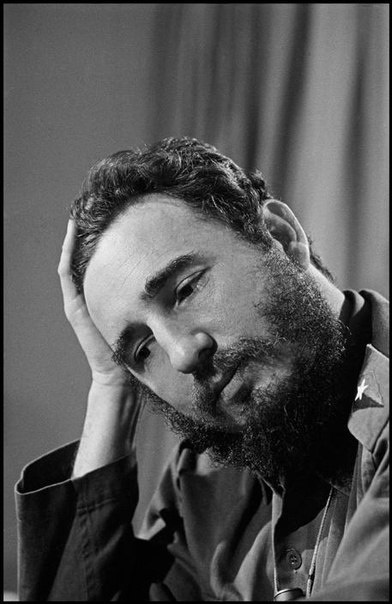The Black Scholar remembers Fidel Castroby ivetteromero |

[Many thanks to Peter Jordens for bringing this item to our attention.] The Black Scholar: Journal of Black Studies and Research remembers and honors the late Fidel Castro by providing a selection of articles from their archive collection. These articles are free to access until the end of March 2017 (see link below).
Introduction by Editors of The Black Scholar: Minutes after the official announcement was made in Cuba, the US media kicked into full swing, referring to Fidel Castro as a dictator, a tyrant, and despot who oppressed the people of Cuba. Even the President Elect couldn’t help gloating on his favorite medium for historical fabrication, Twitter. Fixing Castro in the public eye as no more than a brutal megalomaniac, they regurgitated rancid Cold War delusions about the decade “freedom” was vanquished on the island; and all but salivated over the possibility of prosperity in the coming days, when free-market enterprise and US hegemony (synonyms, clearly) will once again be restored. However, those of us at The Black Scholar (Journal of Black Studies and Research), remember Malcolm X’s cautionary words that the media “will have you hating the people being oppressed, and loving the people doing the oppressing.” We remember also a long intimate history between the journal, the revolution and the Cuban people. With this in mind, we’ve compiled all of Castro’s writing from our archives, and bundled them for free public access. It’s our modest effort to tell a different story about Fidel Castro and what he meant to the founders of The Black Scholar, to people of African descent, people of the global South and people struggling for a just, post-capitalist world.
Though not perfect, Fidel was an icon of transformative struggle, a beacon for radical resistance and a stalwart of anti-racist politics. He was the persistent thorn in the side of U.S. political stooges procured by the pockets of corporate multinationals, and a supporter of all those nations—particularly in Africa—that strove to find their own paths in the wake of formal colonization. For more than fifty years, Castro’s Cuba remained the major obstacle to unbridled American imperialism in the Western Hemisphere. Now that he is gone, those of us who remember a different leader than the one disparaged by the US media would be remiss if we did not take the opportunity to revisit his words, his speeches, and his clear reminder that, “no one will fight for us, that is, for the overwhelming majority, only we will do it… Our most sacred duty is to fight, and fight we will.”
These articles are free to access at http://explore.tandfonline.com/page/bes/rtbs-archive-collection/rtbs-archive-collection-fidel-castro until the end of March 2017:
- Fidel Castro Denounces Aggressions Against Cuba (1976)
- An Interview with Fidel Castro (1978)
- Report on the Sixth Summit Conference of Non-Aligned Countries (1980)
- Peace and Economic Development (1987)
- Renewal or Death (1989)
- Speech by Fidel Castro on the 40th Anniversary of the Cuban Revolution (1999)
- The War on the Dark Corners of the World: Resisting the Doctrine of Pre-emptive Strike (2003)


